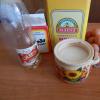How to deal with alcohol poisoning. What to do with alcohol poisoning at home? Consequences of excessive drinking
Alcohol, even in small doses, has a toxic effect on the central nervous system. In medicine, there are three stages of alcohol intoxication - light, medium and heavy.
What are the signs of alcohol poisoning and how to remove alcohol intoxication at home? What drugs can be used to relieve hangover? What can not be done in case of poisoning, and in what cases it is necessary to consult a doctor without wasting time on self-treatment? Let's analyze these questions, but first we will decide what is alcohol poisoning.
What is alcohol intoxication
The term alcohol intoxication means poisoning the body with ethyl alcohol. Normally, a small amount of ethanol is neutralized in the liver without consequences for the body. But if you use the amount of alcohol that exceeds the detoxification capacity of the liver, the poison enters the brain and causes violations of higher nervous activity. Outwardly, this is manifested by a feeling of euphoria, clouding of consciousness, and a lack of coordination.

With a severe degree of poisoning, a person loses sensitivity, reflexes weaken, and stuns occur. In the extreme stage of possible heart failure, cessation of breathing, deep coma. Such effects occur when the concentration of ethyl alcohol in the blood in an amount of 3% or more. Lethal dose of alcohol is about 300 grams in terms of pure alcohol. If we consider the average lethal dose in terms of body weight, it is 8 grams of ethanol per kg.
In everyday life alcohol poisoning is called any changes, accompanied by a deterioration of health due to drinking alcoholic beverages. They can appear immediately after taking a large dose (vomiting, loss of consciousness) or visit you the next morning - hangover. In general, these conditions are treated equally, but there are some nuances. The effect of ethanol on the gastrointestinal tract and brain plays a great role in the phase of acute poisoning, and the hangover is largely triggered by the products of the partial decomposition of ethyl alcohol, in particular, with acetaldehyde.
Poisoning low-quality alcohol
Separately, it must be said about alcohol substitutes poisoning. According to statistics, this type of poisoning occupies a leading position in the list of all intoxications. Moreover, more than 90% of victims die before the time of hospitalization.
Alcohol substitutes are:

In case of poisoning with similar products, intoxication is poorly expressed or does not occur at all, visual disturbances, convulsions, drooling, sweating, vomiting, and pain in the abdomen and joints are often observed.
Surrogate intoxication cannot be removed at home — immediate medical assistance is required immediately. Delay can cost life. As a first aid measure cause vomiting, take enterosorbent and any enveloping agent. Further, hospitalization is required.
First aid for alcohol poisoning
What to do with alcohol poisoning at home? For this, a number of measures are being taken aimed at ridding the body of ethyl alcohol and neutralizing its decay products.
 First aid for alcohol poisoning includes the following steps.
First aid for alcohol poisoning includes the following steps.
- Remove residual alcoholic beverages from the stomach. To do this, cause vomiting, then wash the stomach - drink 2-3 glasses of salted water, again provoke vomiting and so until practically clean water comes out of the stomach.
- If unconsciousness is induced, vomiting cannot be induced. Call an ambulance. In anticipation of her arrival, lay the victim on one side, loosen his clothes, check his pulse and breathing. Turn your head, make sure that the tongue does not sink, and the vomit does not get into the respiratory tract. To bring the victim to his senses, let him smell ammonia, rub his ears.
If alcohol poisoning does not pose a threat to life, the intoxication is removed independently at home.
Treatment of alcohol intoxication at home
Treatment of alcohol poisoning at home consists of the following actions:

Sometimes poisoning is accompanied by bouts of vomiting. If you vomited once or twice - this is the body's natural reaction to poison and there will be no harm from it, but only good, given the current state. But if the emetic urge does not pass after emptying the stomach, then you need to take action.
How to stop vomiting after alcohol poisoning?
- Rinse your head with cold water or briefly apply ice to the back of the head.
- Drink some water or Regidron-type reducing solution.
- Do not eat or drink anything else until your stomach is calm.
If the measures taken do not give a result, antiemetic drugs will help. Indomitable vomiting, the presence of bile in the vomit or blood admixture are grounds for immediate hospitalization.
Let us dwell on the medicines with which they treat alcohol poisoning at home.
Enterosorbents
After freeing the stomach from the contents of the need to take chelators. These drugs act in the intestines, seizing toxins and decomposition products on their surface, and removing them with feces. The following drugs have proven themselves well.

It must be remembered that all enterosorbents must be taken separately from drugs, otherwise the latter will lose their effectiveness. Between their methods it is necessary to observe a gap of at least one hour, and preferably two hours.
Water balance restoration
 Vomiting dehydrates the body and washes away mineral salts from it. In addition, alcohol is a strong diuretic. In case of poisoning, you need to drink plenty of water, preferably mineral or acidified with lemon juice. The drugs belonging to the group of rehydrating agents help to cope with the arisen imbalance. They contain a balanced set of sodium, potassium, chlorides, sometimes carbohydrates and help the body cope with intoxication.
Vomiting dehydrates the body and washes away mineral salts from it. In addition, alcohol is a strong diuretic. In case of poisoning, you need to drink plenty of water, preferably mineral or acidified with lemon juice. The drugs belonging to the group of rehydrating agents help to cope with the arisen imbalance. They contain a balanced set of sodium, potassium, chlorides, sometimes carbohydrates and help the body cope with intoxication.
"Regidron" with alcohol intoxication can be taken orally in the amount of 10-17 ml of the prepared solution per kg of weight. One packet of the drug is dissolved in one liter of water and stored in the refrigerator for no more than a day.
Analogs of “Regidron” are the preparations “Hydrovit” and “Citraglukosolan”. Also, a similar solution can be prepared independently: for one liter of water take 1/2 tsp. salt, 1/2 tsp soda, 4 tbsp. l Sahara.
With strong alcohol intoxication, a dropper is needed. Its composition is approximately as follows:
- saline, or "Disol", or "Hemodez";
- 5 or 10% glucose solution;
- 5% solution of ascorbic acid.
If necessary, include vitamins (nicotinic acid, pyridoxine), magnesia, potassium chloride, panangin, heart remedies. The dropper volume is usually 400–500 ml. It should be put by a medical professional, as well as determine the composition of the solution for infusion - improper handling can be harmful to health.
Complete cleansing of the body from alcohol, possibly in the case of its removal by the kidneys. To do this, use diuretics (diuretics), the best and safe of which is considered ordinary water. You can also use the recipes of traditional medicine - drink decoctions of herbs. They not only restore vitamin losses, but also supply the body with antioxidants it needs.
Restoration of intestinal microflora
Alcohol and its decay products kill the intestinal microflora. After alcohol intoxication, gastrointestinal activity is often disturbed, constipation or diarrhea develops. Beneficial bacteria must be restored. This can be done by eating dairy and fermented foods or taking probiotics:

Eases the hangover by emptying the bowels. If constipation is noted after drinking, you can put an enema - this will remove toxic products from the large intestine.
What not to do with alcohol poisoning
- In no case can not combine the intake of alcohol and diuretic "Furosemide", as this has a negative impact on the liver and kidneys.
- Aspirin is also taken with caution. It can be drunk only in the state of hangover, but if intoxication has not passed yet, then this medicine can cause various complications.
- You can not use any hypnotic drugs, as they exacerbate the depression of the central nervous system caused by alcohol.
- The recommendation to go to the bath and thereby get rid of a hangover is only suitable for people with Siberian health.
What to do with a hangover
How to treat a hangover in the morning after a heavy drink? The following measures are effective:

 You should not experiment with drugs, it is better to resort to using special pills for alcohol poisoning:
You should not experiment with drugs, it is better to resort to using special pills for alcohol poisoning:
- "Biotredin";
- "Limontar";
- "Metadoxyl";
- Alka-Seltzer.
Folk remedies for a hangover
If there were no tablets on hand, then you can use the folk remedies used in alcohol poisoning. In addition to the already mentioned brines from a hangover, the following remedies help:

Good for a hangover with a cold shower. Start with hot water, then switch to pleasantly cold, alternate for 30–60 seconds several times, gradually increasing the temperature difference. This contrast will allow the skin to get rid of toxins and toxins, improve the performance of the heart and blood vessels.
In conclusion, we note that it is much easier and more pleasant to prevent a hangover than to treat it. To do this, do not abuse the amount of alcohol, eat well foods containing starch and pectins (potatoes, bananas), and before the feast, take one of the recommended enterosorbents for preventive purposes.
Alcohol poisoning in Russia occupy a leading position among household poisoning. The share of alcohol accounts for more than 60% of all fatal poisoning. Most fatalities (95% -98%) occur before medical care. How to recognize alcohol poisoning, and what measures should be taken to avoid the tragic consequences?
Ethanol (ethyl or wine alcohol) - a chemical substance of moderate toxic activity, colorless, volatile, flammable. Mixes up with water in any quantities, it is easily dissolved in fats. It spreads quickly throughout the body, easily penetrates biological membranes.
Interesting facts about alcohol
- Ethanol is a natural substance for our body. Normally, ethanol is formed in the process of metabolism of various substances, as well as during fermentation in the intestine. However, its concentration is minimal (0.003 g / l) and does not pose a threat to health.
- 20% of the taken ethanol is absorbed in the stomach, the remaining 80% is absorbed in the small intestine.
- On an empty stomach in 15 minutes half of the accepted dose of ethanol is absorbed into the blood. On average, after 1 hour and 30 minutes, the maximum concentration of ethanol is observed in the blood.
- The fastest (and more than 30 degrees) strong and carbonated alcoholic beverages are absorbed into the blood.
- The rate of ethanol absorption increases with repeated doses and with diseases of the stomach (gastritis, peptic ulcer).
- Food in the stomach reduces the rate of ethanol absorption. In this regard, the consumption of alcoholic beverages on a full stomach is one of the preventive measures of alcohol poisoning. As a rule, a one-time consumption of 0.5 liters of vodka for adults will cause alcohol poisoning. However, the same amount of vodka drunk during the day will only maintain a state of intoxication.
- Having a good ability to dissolve in fats, ethanol easily enters the body through the skin. Fatal cases of poisoning of children using alcohol extracts of plants for compresses and wraps are described.
- Ethanol easily penetrates the placental barrier and spreads throughout the body of the fetus. The toxic effect of alcohol on the fetus is much stronger than on the mother's body.
- On average, a lethal dose of alcohol is 300 ml of 96% ethanol in a single dose.
- Ethanol is eliminated from the body in three main ways: 1) 2-4% ethanol is eliminated through the kidneys, 2) 3-7% through the lungs, 3) up to 90-95% ethanol is processed in the liver, where it ultimately splits into carbon dioxide and water.
What are the symptoms and signs of alcohol poisoning?

The first signs of alcohol poisoning
Drinking alcohol can cause three different conditions:| condition | Characteristic |
| Consciousness of the patient saved, but there may be a slight disturbance. At first, a person experiences high spirits, emotional arousal, and euphoria. Then the processes of thinking slow down, both mental and physical activity decrease, consciousness is depressed, a person becomes sluggish, slow, drowsy. |
| In the case of the development of coma talk about alcohol poisoning. |
| The toxic effect of ethanol degradation products on the body, while ethanol itself in the blood is not determined. |
The first symptoms of alcohol poisoning and the mechanisms of their occurrence
| What is affected? | Symptoms | Mechanism of occurrence |
|
|
|
|
|
|
|
| The patient during vomiting, diarrhea loses a lot of fluid from the body. In addition, due to an increase in the permeability of the vascular wall, the fluid from the vascular bed passes into the extracellular space. To compensate for the volume of circulating blood, the body includes a number of compensatory mechanisms: increased heart rate, narrowing of peripheral vessels, thus, blood is redistributed to more important organs. |
|
|
|
|
|
|
|
|
|
Severe alcohol poisoning
In severe cases, the patient falls into a coma, that is, loses consciousness and does not respond to external stimuli (slapping the cheeks, loud noises, tingling, etc.). The concentration of ethanol in the blood of 3 g / l and more causes coma.Allocate 2 phases of alcoholic coma: superficial coma and deep.
| Coma Phase: | Symptoms |
|
|
|
|
What determines the severity of alcohol poisoning?
| Factor | Why? |
| When large doses of alcohol enter the body, especially at one time, the liver (the main organ responsible for the neutralizing function of the body) simply does not have time to process it. And ethanol, as well as products of its incomplete decay, accumulate in the blood and damage vital organs (brain, kidneys, liver, heart, etc.). A healthy liver of a man weighing 80 kg per hour fully processes only 8 grams. pure alcohol. For example, in 100 ml of 40-degree vodka contains 31.6 grams. pure alcohol. |
| The most sensitive to the effects of alcohol are children and the elderly. In children, the mechanisms of neutralization have not yet fully formed. In older people, these mechanisms are not enough to perform their function. |
| Most often, alcohol intolerance and the rapid development of alcohol poisoning are found among people of the Mongoloid race. They are genetically determined by the low activity of a special enzyme ethanol necessary for complete breakdown (aldehyde dehydrogenase). Intoxication occurs as a result of the accumulation of the product of incomplete decomposition of ethanol (acetaldehyde). |
| All of these conditions reduce the function of the liver, including the neutralizing function. |
| The toxic effect of ethanol is enhanced while taking it with the following drugs: hypnotics, tranquilizers, antidepressants, painkillers (morphine, omnopon), etc. |
| The toxic effect of ethanol is increased due to impurities and additives: methyl alcohol, higher alcohols, aldehydes, furfural, ethylene glycol, etc. |
| On an empty stomach in 15 minutes half of the accepted dose is absorbed into the blood. Alcohol consumption with food, especially with carbohydrate food, significantly reduces the rate of its absorption and thereby reduces the rapid increase in the concentration of ethanol in the blood. |
How to drink without getting drunk and avoid a hangover? There are many “proven” folk remedies, but unfortunately, not all of them work as they should. In the arsenal of medicine there is a reliable tool - PEPIDOL.
With PEPIDOL everything is simple: take 50 milliliters of the solution 15-30 minutes before the feast and 50 milliliters in the morning. Drinking after taking alcohol, of course, comes, but due to the fact that PEPIDOL envelops the intestinal wall, it happens much slower. In addition, PEPIDOL is an excellent sorbent. It promotes the excretion of poisons, toxins, alcohol metabolism products. Like and drank, and you feel "cucumber". It turns out that PEPIDOL is something like a means for a real intelligence officer, when after drinking you can easily control everything.
It should be noted that PEPIDOL works even when the hangover has already arrived. In this situation, it is also necessary to take 50 milliliters of the solution and 50 milliliters in three hours.
Poisoning with alcohol substitutes
 Alcohol substitutes - These are different types of liquids that are not designed for ingestion, but they are used instead of alcoholic beverages to achieve a state of intoxication.
Alcohol substitutes - These are different types of liquids that are not designed for ingestion, but they are used instead of alcoholic beverages to achieve a state of intoxication. Types of surrogates:
- Colognes, lotions, various medicinal tinctures (hawthorn, motherwort, etc.)
- Technical fluids (brake fluid, antifreeze, windshield wipers, etc.)
- Methyl alcohol, ethylene glycol - the most dangerous surrogates.
Methyl alcohol poisoning
Methyl alcohol is contained in: car window cleaning liquids and solvents. In the body, methyl alcohol is oxidized to formaldehyde and formic acid, which carry out the main toxic effect. Symptoms of poisoning occur after 12-24 after use. Symptoms: headache, nausea, persistent vomiting, abdominal pain, dizziness, malaise, visual impairment (flies, fog before eyes, double vision, blindness). When methyl alcohol poisoning very often affects the retina and optic nerve, which in many cases leads to blindness. Persistent dilation of the pupil in case of poisoning is considered an unfavorable prognostic sign. In severe cases, death occurs from respiratory paralysis and impaired cardiovascular activity.Ethylene glycol poisoning
Ethylene glycol is contained in: brake fluid, antifreeze, solvents, glass cleaner. When ethylene glycol gets into the body during its decomposition, glycolic and oxalic acid are formed, which determine the severe course of poisoning. Oxalic acid forms insoluble salts that clog the renal tubules, causing acute renal failure. Severe symptoms of poisoning occur 4-8 hours after consuming ethylene glycol. Symptoms: nausea, repeated vomiting, mental and physical arousal, tremor, convulsions, depression of consciousness, coma. 2-3 days after poisoning, symptoms of acute renal failure occur: acute pain in the lower back, abdomen, urine in the color of “meat slop”, a decrease in the amount of urine.What to do when alcohol poisoning?
| Do I need to call an ambulance? |
|
| Well no | Why? |
| Yes need! This should be done as early as possible.
|
|
First aid for alcohol poisoning
| What to do? | How? | What for? | |
| Ensure airway patency |  |
|
|
| Properly put the patient, fix the tongue |   |
|
|
| For cardiac arrest and respiration, perform an indirect heart massage and artificial respiration. |  |
|
|
| Conscious if the patient is unconscious |  |
|
|
| Cause vomiting (if the patient is conscious!) |  |
|
|
| Perform a gastric lavage |   |
|
|
| Warm the sick |  | Place in a warm room, cover with a blanket, dress, etc. |
|
| To accept adsorbent(a substance capable of absorbing various types of toxins) activated carbon, white coal, polysorb, entorosgel, etc. |  |
|
|
| Take substances accelerating the neutralization and elimination of ethanol from the body |  |
2) Vit. B6 (pyridoxine) 3 ml-5%; 3) Vit. With (ascorbic acid) 5-10ml-5%; 4) 10-20 ml of 40% glucose Administer intravenously.
|
|
| Restore water and mineral balance |  | Droppers:
|
|
| To accept Hepatoprotectors |  |
|
|
| In case of poisoning methyl alcohol or ethylene glycol drink ethyl alcohol |  | For the first time hours of poisoning to drink high-quality strong alcohol:
| Ethyl alcohol acts as an antidote, it stops the breakdown of methyl alcohol into toxic substances (formic acid and formaldehyde). 4-methylpyrazole (pyrozole, fomepizol) is the newest antidote for poisoning with methyl alcohol and ethylene glycol. The drug reduces the activity of the liver enzyme (alcohol dehydrogenase), thereby interrupting the formation of toxic substances from the above alcohols. |
What can not be done with alcohol poisoning?
- Lay the patient on his back, a big risk that he will choke on vomit
- Give alcohol again only if it is not poisoning with methyl alcohol or ethylene glycol.
- Take a cold shower. Alcohol poisoning disrupts the processes of thermoregulation, the body already suffers from heat loss. A cold shower can only make things worse.
- Forcing the victim to stand up and walk. At the time of poisoning, all organs and systems are working in an extreme mode, and any additional stress can lead to damage.
- Do not leave the patient alone. For example: the victim may lose consciousness at any time, and suffocate if the tongue sinks.
- Do not induce vomiting, do not gastric lavage if the patient is unconscious (at home). There is a high risk of gastric juice entering the respiratory tract and the development of acute respiratory failure.
Complications of alcohol poisoning
- Acute toxic hepatitis
- Acute Liver Failure
- Delirium tremens (delirium tremens), delusions, hallucinations
- Mendelssohn's syndrome(Mendelssohn's syndrome is a serious condition in which acute respiratory failure develops due to the ingestion of gastric juice in the respiratory tract). In case of alcohol poisoning, the syndrome often develops when vomit enters the respiratory tract.
Prevention of alcohol poisoning

- Do not drink alcohol on an empty stomach
- Do not drink alcohol in high doses.
- Do not drink alcohol for diseases of the gastrointestinal tract, fatigue, nutritional deficiencies
- Do not drink alcohol on the background of medication (antidepressants, hypnotics, painkillers, etc.)
- Before drinking alcohol eat tight
- Snack after drinking a dose of alcohol
- Try not to combine different spirits
- Try to take alcohol in ascending degrees
- Do not drink substandard spirits
- The best prevention is NOT to drink at all!
Currently, poisoning can occur with any food. But most often this phenomenon occurs when excessive or poor-quality consumption of alcohol. On the eve of holidays, the problem becomes the most urgent.
How to remove alcohol intoxication at home quickly and efficiently, not a small number of people are interested. Today, there are several traditional and folk methods of relief. But the more important point is the prevention of such a condition.
Even in small doses, alcohol has a detrimental toxic effect on our central nervous system. In medicine, doctors distinguish between three stages of alcohol intoxication - light, medium and severe.
Today we will talk about what to do in case of alcohol poisoning at home, what help you need to give first of all, to alleviate the condition of the affected person and prevent serious consequences for health and life.
What can not be done with alcohol poisoning, and in what cases it is necessary to consult a doctor without spending precious time on self-treatment? Let's analyze these issues in detail, because this information is very important and can help, if necessary, provide first aid and save a person’s life.
Stages of alcohol poisoning and their symptoms
For alcohol to affect the body, in fact, only 10-12 grams of ethanol is enough. This is equal to a glass of wine or a shot of vodka, they are considered to be the average portion. It is after this dose that the breathalyzer is able to fix the release of alcohol vapors. Conditionally there are the following stages of development of alcohol intoxication with certain manifestations:
- 1-2 servings. Already after this volume, there is an expansion of blood vessels, a slight increase in heart rate, a feeling of warmth behind the sternum, self-confidence and a decrease in concentration. Indicators of alcohol vapor in exhaled air range from 0.3 to 1.0 ppm. When drinking alcohol on an empty stomach, a slight impairment of speech may appear.
- 5-6 servings. The balance is significantly disturbed, dizziness and slow reaction appear. A person is able to perform reckless actions. The volume per mille is 1.0-1.5. The state of intoxication gives a precarious gait and alternation of psychomotor excitement with apathy.
- 8-9 servings. After such an amount of alcoholic beverage in the morning appears hangover. During intoxication, speech, coordination of movements, and sight are sharply disturbed. The results of the breathalyzer indicate 1.5-2.2 ppm.
- 11-12 servings. The condition is quite heavy. The body’s response to alcohol consumption is uncontrollable vomiting, frequent urination and diarrhea. The reaction to external stimuli is absent, a person is not able to move independently, and sometimes even speak. The volume of alcohol in exhaled air is 2.2-3.0.
- 12 servings and more. Blood alcohol concentration exceeds all permissible norms. As a result, coma or death may develop. The body is not able to get rid of ethanol, which affects the work of the respiratory system and heart rhythm.
Attention!!!
For an adult with good health, let us accept one serving of alcohol per hour. It should be understood that this is a relatively safe amount of alcohol. The best option would be the complete absence of intake of strong drinks.
First aid - how to help yourself
Life presents us with not always pleasant surprises, very often the situation after the holiday feasts develops in such a way that the question arises: when did the poisoning and alcohol intoxication in a person, how to remove at home, urgently to save life?
In severe alcohol intoxication in the first place a person should not be left unattended. He is constantly in a certain danger, as it can fall and suffocate vomit. In addition, in such a state there is often a sudden cessation of breathing and cardiac activity, a stroke, renal or hepatic colic develops.
Attention!!!
In the event of persistent vomiting, with admixture of bile or blood clots, you should immediately call an ambulance. Such symptoms usually indicate the development of severe pathology.
Under the influence of alcohol, even the most calm and modest person is capable of sudden outbursts of aggression. Therefore, before conducting first aid, it is necessary to try to explain to the victim the order of his actions. They will be as follows:
- Free the person from dirty, oppressive, wet clothes and warm cover.
- You should not try to deliver the victim to the shower room or constantly drink him strong tea, especially coffee. Caffeine contained in these drinks can exacerbate the effects of intoxication, in turn, this provokes the development of a heart attack and a sharp increase in blood pressure.
- To cause an artificial gag reflex. This is allowed only if the person is conscious. In a fainting or pre-unconscious state, this is fraught with vomit entering the respiratory tract.
- During vomiting, give a drunk person a half-sitting position, tilt his head forward and constantly hold him to prevent injury.
- If a poisoned person is not able to sit, then in time of an emetic attack, he should be put on his side and turn his head so that it hangs down from the bed. In this position, the victim may fall, so it must also be held.
- To remove residual alcohol from the stomach, you can rinse it by consuming 2 glasses of salt water. Usually after this occurs the gag reflex. Rinsing is recommended until the water is clear.
Help with severe alcohol poisoning!
If the stomach is empty and the vomiting does not stop, then the following should be done: wet the head with cold water, apply ice from the back of the head, drink some Regidron solution, do not consume any food or other beverages.
Reducing alcohol intoxication - methods of rapid exposure
First of all, it is necessary to reduce the amount of ethanol in the bloodstream. If this is not done, the body will be difficult to cope on its own. How to quickly remove alcohol intoxication and sober up without consequences? This will help the following methods:
- A simple solution would be to consume a large amount of fluid in combination with diuretic drugs. It is worth remembering that such a remedy as furosemide is prohibited. This can cause kidney problems.
- A good option is to take aspirin, which actively neutralizes acetaldehyde, a substance derived from the decay of ethanol. It is what causes the symptoms of poisoning.
- To bind alcohol and elements of its breakdown in the gastrointestinal tract, it is worth taking a few tablets of activated carbon or Filtrum-Ste.
- In severe cases, intravenous administration of certain medications is required. Without special knowledge, this is not recommended.
- With a strong intoxication a good result is observed with the intramuscular administration of vitamin B6.
- After clearing the mind, you can drink a solution of nicotinic acid, phenamine, and corasol. A few drops of funds are added to the floor of a glass of water. Even with strong drunkenness, after a few minutes, thinking normalizes and lethargy disappears, and after 1-2 hours complete sobering occurs.
Well removes alcohol intoxication solution of glucose, ascorbic acid or Nicotinamide. These funds can be counted with vitamins of group B.
When do you need an immediate emergency call?
The threat of life with alcohol intoxication can occur at any time. The danger is greatest during adolescence, in the elderly, as well as in individuals with the presence of concomitant somatic diseases.
In case of alcohol poisoning, when should you call an ambulance?
There are symptoms, in the presence of which it becomes clear that simple household methods are not able to have the desired effect. Therefore, when forming the following symptoms, you need to call an ambulance:
- lack of consciousness and reaction to physical as well as noise stimuli;
- sharp pale skin with pronounced cyanosis and the presence of cold sticky sweat;
- slowing respiratory rhythm;
- the presence on the skin of pigmentation of an unusual form;
- the development of seizures;
- pathological wheezing or strong snoring;
- intermittent breathing for more than 10 seconds;
- vomit entering the airways.
What not to do?
To provide first aid to a person who is in alcohol poisoning, should be approached with complete seriousness. There are quite a number of myths, according to which you can easily get rid of a serious condition. However, in practice, many of them remain ineffective or, on the contrary, can lead to unpleasant consequences.
Attention!
If there are clear signs of alcohol poisoning, it is prohibited to take sleeping pills or sedatives. In most cases, it is fatal.
There is a difference between mild intoxication and real alcohol poisoning. Therefore, in severe cases it is strictly forbidden to do the following:
- Bring a drunken person to fresh air and make him walk outside. Due to a sharp lack of coordination of movements, severe injuries can occur when falling or colliding with various objects.
- Leave the person unattended. In cases of drinking a large dose of alcohol, the concentration of ethanol in the bloodstream will increase as it is absorbed for a while, even if the person stopped taking alcohol a few hours ago.
- To give large doses of strong coffee or black tea, as well as any drinks containing caffeine. This component when mixed with alcohol provokes dehydration of the whole organism. Such an impact is fraught with negative consequences in the structure of the brain.
- It is not necessary to pour cold water on a drunk person. As a result of intoxication, body temperature decreases, an additional cold effect is able to provoke hypothermia.

Non-traditional methods of exposure to exit from the state of intoxication, have been known for a long time. However, many of them are effective only in complex treatment with a certain amount of ethanol consumption. If an obvious poisoning has occurred, then such means will only be a supplement to the complex effect. The following is recommended for admission:
- Diuretic teas. They are decoctions of parsley root, linden flowers, thyme or mint.
- Saffron tincture. It is recommended to take after complete cleansing of the stomach. To prepare enough one teaspoon of saffron powder, a glass of boiling water.
- Egg whites. For a single dose, you will need 2 raw chicken eggs. It is necessary to thoroughly stir the squirrels and drink in one gulp.
- Honey water. It helps eliminate malaise and speed up the sobering process. To prepare the solution is quite simple. Take 150 g of natural honey and completely dissolve in a glass of water.
- Apple vinegar. They give ammonia in a volume of 10 drops to a glass of water (this tool is quite dangerous and it is better not to use it) is better to take apple vinegar in a volume of 1 teaspoon for half a glass of water. A solution of apple cider vinegar should be sipped every 15 minutes.
- Melissa and Mint. When nausea does not pass even on an empty stomach, a decoction of lemon balm or mint will help overcome this condition. It is recommended to drink it chilled for half a glass every 40-50 minutes.
- Fresh orange juice. It helps to effectively neutralize the toxins formed as a result of the decay of ethanol.
- Lemon and sugar. Half of the sour fruit needs to survive in a glass of water and add a spoonful of sugar.
- Brine. This proven folk remedy, for several centuries, makes it easier for people to have a state after a feast. The most suitable is pickled sauerkraut pickle. However, it is worth noting that such treatment has only a symptomatic effect and is more suitable for a hangover.
It is important to know!
Folk remedies to help with alcohol intoxication will be indispensable during the recovery period. They will help eliminate toxins and strengthen the immune system.
Drugs for alcohol poisoning
Better that all drugs prescribed by a doctor. Of course, many of them are sold freely in the pharmacy without a prescription. Before use, be sure to read the instructions and pay attention to compatibility with other medicines. In case of alcohol poisoning, you will need several drugs with different effects.
Enterosorbents
They are appointed immediately after the release of the stomach from the remnants of alcohol and food. Enthorosorbents seem to collect all the toxins and decay products of ethanol, which are subsequently excreted in feces. These include:
- Enterosgel Used for washing the stomach in a volume of 10-30 g for dissolution in warm water. After that, Enterosgel is taken in its pure form up to 50 g, washed down with plenty of water, repeated admission is allowed after 3 hours.
- Polysorb MT. This drug should be drunk in the amount of one tablespoon, with a glass of water. With severe poisoning, the frequency of admission increases to 5-6 times a day.
- Smekta. The tool has not only a sorbing effect, but also enveloping. This is an additional advantage for alcohol poisoning. A single dose is 1-2 bags.
Adsorbents
Ethanol can quickly be absorbed into the bloodstream. Adsorptive drugs simply do not have time to bind the particles of alcohol and prevent their spread. Therefore, they are considered as a supplement in complex treatment and rehabilitation therapy. Adsorbents will be especially indispensable when various surrogates are introduced into the body.
Lingosorb, Carbolen, Integnin and Polyphenap have a fairly good effect. Rekitsen RD is today considered a modern and highly effective drug. It is used not only for poisoning, but also for alcohol withdrawal.
Symptomatic effect
To eliminate all the results of the negative effects of ethanol on the body, complex therapy is required. For this fit such drugs as:
- Biotredin. The drug has a fast action and does not accumulate in the tissues. It helps to normalize the metabolism, activate mental capacity, arrest the symptoms of a hangover and emotional stress.
- Metadoxyl. It contains a compound of magnesium and sodium. Allows you to accelerate the elimination of the decay of ethanol and quickly clean the blood. Available in tablets and solutions for injection.
- Yantavit It is a biologically active food supplement. The therapeutic effect is due to exposure to glucose and succinic acid. Used to enhance the body's defenses and restore energy metabolism.
- Limontar. It has an antioxidant effect, enhances performance, appetite, neutralizes toxins, which ensures normal metabolism.
- Alka-Seltzer This is a well-known drug that improves liver function, has anti-inflammatory effect, relieves headache and muscle pain, and also eliminates withdrawal symptoms. This is due to the effects of citric acid and sodium carbonate, which is contained in its composition.
Precautionary measures
To prevent yourself from the consequences of excessive consumption of strong drinks, you should perform certain actions. Unfortunately, they will not save from surrogates, but they will reduce the hangover syndrome and help to recover faster. These rules include:
- before meals, take 3-5 tablets of activated carbon;
- if possible, drink a glass of milk;
- vitamins that take a few days before certain events will help ease the condition;
- during the festivities, be sure to eat meat, fish, and potatoes;
- do not drink alcohol with carbonated drinks;
- try more often to take a break between taking alcohol;
- drink in small doses;
- one should leave the table to the fresh air and be at least 10 minutes outside;
- finish drinking alcohol 3-4 hours before bedtime;
- drink more natural juices or compote;
Immediately after the feast, you can eat fresh fruits and vegetables (they should not be consumed in large quantities during alcohol intake, as this will lead to the fermentation effect in the gastrointestinal tract and cause additional problems).
Conclusion

To avoid the need to remove alcohol intoxication on their own and at home, do not torment such a serious condition as a hangover, you should completely abandon the strong drinks. This is the most loyal and effective way.
It is important to know!
If only everyone who consumes alcohol, was aware of what damage it brings to the body, how its internal organs and systems suffer, then surely would change the attitude to this addiction.
Every person throughout his life more than once have to deal with alcoholic beverages. They accompany human happiness and grief. Alcohol is consumed at a birthday party, wedding, funerals, and just from a bad mood. However, in all you need to know when to stop. Very often, a person asks a question about what to do with what to do in such a situation, the presented article will tell you. You will learn how poisoning manifests itself, in what cases it occurs.
Drinking alcoholic beverages
What you need to do when alcohol poisoning, you can learn a little later. For a start it is worth saying a few words about the onset of this condition. It has several classifications - mild, moderate and severe. The condition of the victim is determined by the accompanying symptoms. You can also determine the degree of poisoning by using laboratory tests by determining the amount of alcohol in the blood.
Drinking alcohol often has its consequences. In this case, the greater the accepted dose, the higher the degree of intoxication. It is worth noting that laughing drinks can be different. The lightest are beer, wine, champagne and vermouth. In them, the concentration of ethanol does not exceed 15 percent. Much more serious consequences are cognac, vodka, tequila, gin and whiskey. Absinthe is considered one of the strongest drinks.
Intoxication
What to do when alcohol poisoning? It all depends on what exactly you had to face. Alcohol intoxication may be primary. In this case, you will feel bad immediately after drinking. You can also experience all the delights of the green serpent the next morning. This is called a hangover.
Alcohol poisoning is named for the following reasons. Ethanol after getting into the stomach is very quickly absorbed into the mucous membranes. Through them, he finds himself in the blood. The liver is able to recycle a certain portion of these poisons. However, her powers are not infinite. When using large doses of alcohol begins to flow directly into the brain. It is here that the effect occurs on the entire nervous system and individual organs. Consider how to determine the poisoning of alcoholic beverages.

Symptoms and signs of intoxication
Alcohol depends on the severity of symptoms and associated symptoms. At the very beginning of intoxication, no disturbing symptoms are detected. A person feels euphoric, his problems disappear. Intoxicated starts to look at everything that happens around him with different eyes. In this situation, the following signs of intoxication are noted:
- dilated pupils;
- redness of the skin;
- categorical loud statements;
- sounding all your thoughts.
Later (after increasing the dose drunk) abdominal pain, nausea and vomiting may occur. With such signs, the body is trying to get rid of the poison falling into it. Among the more severe signs of poisoning are the following:
- decrease in pulse and pallor;
- loss of consciousness and cold sweat;
- impaired breathing and hearing;
- involuntary urination, defecation and vomiting (unconscious);
- the inability to stand on their feet and articulate their thoughts.
In the absence of timely assistance, the described symptoms may result in a drunk person falling into an alcoholic coma. In this case, irreversible consequences for the brain and nervous system can already be determined.
Signs can also be distinguished in the form They are determined the morning after the feast. A person complains of headache, dry mouth, diarrhea, nausea and vomiting. The stomach ceases to perceive food. Anything that goes into the digestive tract is immediately sent back. Often, the pulse quickens, shortness of breath, perspiration. May increase body temperature.

Surrogate alcohol
How to act in case of alcohol poisoning? What to do if alcohol turned out to be of inadequate quality? Note that the symptoms of intoxication in this case will be somewhat different. After drinking surrogate alcohol, a person practically does not get intoxicated. However, clearly visible from the first minutes of the feast. The user may complain of tinnitus, blurred vision and smell. This increases salivation and pain in the abdomen. Any delay in such a situation can be fatal.
If surrogate strong alcohol poisoning has occurred, what to do? Call emergency room urgently. Home treatment is unacceptable. If you can get to the hospital faster than the ambulance arrives, do just that. The sooner the user is in the hands of doctors, the more favorable the outcome will be. Remember that after several glasses of surrogate alcohol, there is an immediate death.

First aid
What to do when alcohol poisoning? Many patients try not to use the services of physicians, but to deal with the problem alone. This is possible with a mild or moderate degree of intoxication. As a first aid, it is worth using. It is prohibited to use any drugs. Remember that many medicines in combination with alcohol cause only a worsening of well-being.
Give the drinker a large cup of water. The volume of liquid should be from 300 to 500 ml. After that, induce vomiting. Often it comes on its own, as the body tries to get rid of the poison on its own. Your task is to wash the stomach until clean water comes out of it.
There is an important rule. If the victim has lost consciousness, then you can not force him to pour water. It is also forbidden to provoke vomiting. Call the doctor and wait for the ambulance team to arrive. At this time, you can put the patient on his side or try to bring him to consciousness (rub ears, spray with water, let sniff sal ammoniac).

Filling a lack of fluid
When alcohol poisoning, what to do after gastric lavage? It is very important in time to fill the lack of moisture in the body. Alcohols that enter the body cause dehydration. If you leave this process without intervention, the patient's condition can worsen dramatically. You can give to drink any liquid. However, the stomach does not always perceive it. When gagging, use saline solutions. They quickly restore balance in the body.
These drugs include Regidron, Hydrovit and others. If it is not possible to use medical formulations, then prepare the healing drink yourself. To do this, per liter of cool water, add a teaspoon of salt and soda. Also stir 4 tablespoons of sugar. It is necessary to consume the solution every half an hour for a few sips.

The use of sorbents and beneficial bacteria
If alcohol poisoning has come, what to do at home? Be sure to give the drug may be "Polysorb", "Smekta", "Enterosgel" and others. They will help remove toxins from the body and eliminate diarrhea. Remember that you need to take the described means separately from other medications. The optimal break is 2 hours.
What to do after alcohol poisoning? Be sure to restore the intestinal microflora. Often the problem is accompanied by diarrhea. Do not stop her. The body thus gets rid of toxins. Take a complex of beneficial bacteria ("Acipol", "Linex", "Enterol").
When alcohol poisoning: what to do
If you had to face the described condition, then it is worth knowing which treatment methods should be abandoned. It is strictly forbidden:
- treat the problem with alcohol (many resort to the opochmelaus method);
- visit the bath or bask in the bath;
- take medicines ("Furosemide", "Paracetamol", "Aspirin", antihistamine and sleeping pills);
- stop diarrhea with medication.

Summarizing
If alcohol poisoning occurs, what to do at home? For a hangover, you can use painkillers, as it is forbidden to endure a headache. Take ibuprofen medication.
What actions can be made still? What to do when alcohol poisoning at home? In the morning after a feast, take a cool shower, drink plenty of water. Try not to eat until you feel like it. Go to bed and lie down. Remember that you can not carry the poisoning on the legs. With an increase in body temperature, antipyretic formulations should be used. If after 10-12 hours you do not feel better, contact a specialist.
Ethyl alcohol contained in alcoholic beverages is considered one of the strongest poisons that has a negative effect on the human central nervous system. According to statistics, more than 60% of fatal poisonings occur in cases with alcoholic beverages with a large excess of the permissible dose or inappropriate quality. Depending on the strength of the drink, each of them - beer, wine, vodka, brandy and others - have conditionally safe norms of consumption, the excess of which can result in alcohol poisoning and other complications.
To cope with poisoning with mild and moderate degree of intoxication can be done at home with the help of folk recipes given in this article, but in case of severe intoxication, help should be provided to the victim.
Symptoms
One of the signs of alcohol poisoning is clouding of consciousness.In medicine, there is no concept of "light intoxication" or a harmless dose of alcohol, so any degree of intoxication is considered poisoning, respectively, a feeling of lightness, joy and euphoria, due to which many people drink alcohol, are also signs of intoxication.
However, speaking of more serious symptoms in severe alcohol poisoning, it is necessary to pay attention to speech: it becomes slurred, confused, it is difficult for a person to formulate thoughts and express them. All movements, gestures, facial expressions slow down, become uncoordinated, the pupils dilate, the headache increases, nausea and emetic desires appear - the body tries to clear itself of poison. The most extreme degree is loss of consciousness, also referred to as “alcohol coma”.
In some cases - with alcohol intolerance - in a person, even with small doses, auditory and visual hallucinations may begin, and aggression, anxiety, or fear may appear. This condition usually ends with a sudden sleep, after which the person does not remember anything.
Alcohol poisoning usually reminds of a headache, weakness, indigestion, and stomach pain for a few more days. Chronic use leads to irreversible changes in the brain, microstrokes, the development of cirrhosis of the liver and hepatitis, the development of diseases of the central nervous system and others.
First aid
 When alcohol poisoning is necessary to wash the stomach in any known way.
When alcohol poisoning is necessary to wash the stomach in any known way. To quickly alleviate the condition of a poisoned person, it is necessary to reduce the degree of intoxication. The most effective way is to wash the stomach - drink a few glasses of water, and then induce vomiting, pressing on the root of the tongue. This procedure is repeated up to 4-5 times, so that vomiting contains only the water you drink. Next, you need to sit or lay poisoned in a comfortable position and apply a cold compress to your head, drink strong sweet black tea, and then give any sorbent (Smekta or Filtrum) or activated carbon at the rate of 1 tab. on 10 kg. weight.
If you lose consciousness, you should immediately call an ambulance, and before her arrival, if possible, bring the victim to consciousness - give a sniff of cotton wool dipped in ammonia, lay it on its side, providing fresh air.
In case of respiratory arrest, resuscitation methods should be used - cardiac massage and artificial respiration.
Interestingly, in Belgium brewed beer with a strength of 1.5%, intended for use at breakfast and lunch. Until 1970, such beer was sold even in school canteens, but gradually it was supplanted by sweet soda. Today in the country there are many supporters of the return of beer to educational institutions, since it is recognized as more useful than a sugar-containing drink.
Broths and teas
 Herbal decoctions help reduce the symptoms of poisoning
Herbal decoctions help reduce the symptoms of poisoning Herbal teas and herbal teas help alleviate the symptoms of alcohol poisoning and remove toxins from the body.
Tea from Althea leaves is prepared at the rate of two tablespoons into two glasses of boiling water. Tea insist at least 4 hours, strain before use. Take the medicine during the day, divided into 4 doses.
Ginger tea, which is prepared from 1 tablespoon of ground root in a glass of water, will help restore strength and well-being. Insist for half an hour and drink as often as possible, replacing them with ordinary water.
The decoction of chamomile pharmaceutical, which is prepared at the rate of two dessert spoons of 300 ml. water, help get rid of headaches and nausea with alcohol poisoning. Heat the broth on the fire for 15 minutes, then cool slightly and filter. You need to take medicine as often as possible, replacing them with ordinary tea.
Fresh juices
 Fresh orange juice will reduce headache and nausea with alcohol poisoning.
Fresh orange juice will reduce headache and nausea with alcohol poisoning. Experts say that one of the most effective folk remedies to help get rid of alcohol poisoning is juice from celery root. It is necessary to take one tablespoon three times a day before meals.
Freshly squeezed orange juice perfectly removes toxins, so doctors recommend drinking it with alcohol poisoning, accompanied by a headache. If you drink the juice and during the feast, the symptoms of a hangover will be minimal.
Diluted lemon juice is also effective for headaches caused by excessive drinking. In a glass of water you need to squeeze the juice of half a lemon and add a teaspoon of sugar. Drink juice slowly, but at a time.
Pickles
 The brine will help restore the salt balance, fill the loss of fluid in the body during alcohol intoxication.
The brine will help restore the salt balance, fill the loss of fluid in the body during alcohol intoxication. One of the most common and effective ways to defeat a hangover is to use brine. Such a drink allows not only to completely compensate for the lack of water in the body, but also to normalize the salt balance and restore the osmotic pressure of the blood.
For the treatment of suitable cucumber and tomato pickle or mild marinade. And the best of them is considered pickle pickle. To alleviate the condition of a single glass of brine in the morning.
Other means
 Bananas and natural yoghurt are effective remedies against hangovers.
Bananas and natural yoghurt are effective remedies against hangovers. To improve after drinking, treatment of headaches, unpleasant sensations in the stomach, you need to eat two or three bananas. It contains a large amount of potassium, which has a positive effect on the work of the cardiovascular system, as well as normalizes the work of the stomach and intestines. Natural yogurt has the same effect.
Quickly relieve dizziness and nausea will help drink from chicory. It tastes like coffee, and the substances contained in chicory contribute to the elimination of toxins from the body.
What not to do
 When alcohol intoxication can not give a person alcoholic beverages.
When alcohol intoxication can not give a person alcoholic beverages. A person with moderate and severe intoxication needs help, but it must be timely, safe and adequate.
- flush the stomach of a person who is unconscious, because vomit can get into the respiratory system, causing asphyxiation;
- put a person on his back, because he can choke on his own vomit;
- send a person under a cold shower: at the time of poisoning, the thermoregulation of the body is broken, and most likely the victim is shivering with cold;
- make a person move, because all the organs work at the limit of their abilities, and unnecessary movements can lead to their damage;
- leave the person alone, because at this point breathing can stop, convulsions or vomiting begin, he can fall and hit.
Prevention
 The best way to avoid ethanol poisoning is to avoid alcohol.
The best way to avoid ethanol poisoning is to avoid alcohol. The most important and effective rule is to stop drinking alcohol altogether. However, if a noisy feast or a merry feast is expected, there are some simple rules to avoid alcohol intoxication:
- do not drink alcohol on an empty stomach;
- do not drink alcoholic beverages for any diseases of the gastrointestinal tract, central nervous system, cardiovascular system, during stress or overwork;
- refuse alcohol while taking drugs - antibiotics, antidepressants, painkillers, sedatives, etc .;
- before drinking alcohol tightly;
- snack after each dose, giving preference to protein foods;
- drink one drink without combining;
- if you have to use different drinks, it is better to follow the rule of increasing the degree;
- use only high-quality alcohol.
Many different methods and techniques will help get rid of any manifestation of alcohol intoxication, and the doctor or rescue service who was called in time will provide the necessary help to the poisoned person. However, even the most qualified assistance may not always be timely. Therefore, for a healthy, fulfilling and happy life, it is better to stop drinking alcohol at all.




















